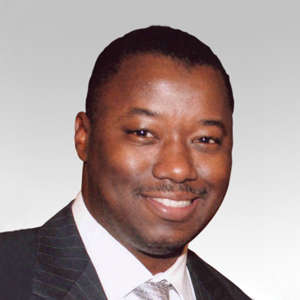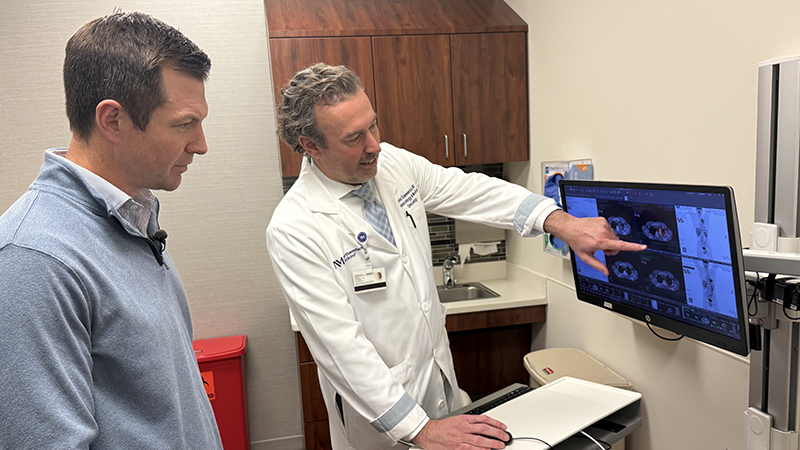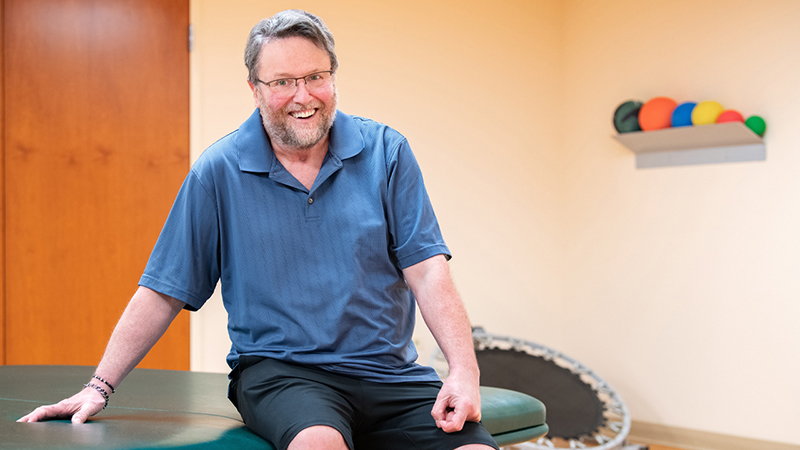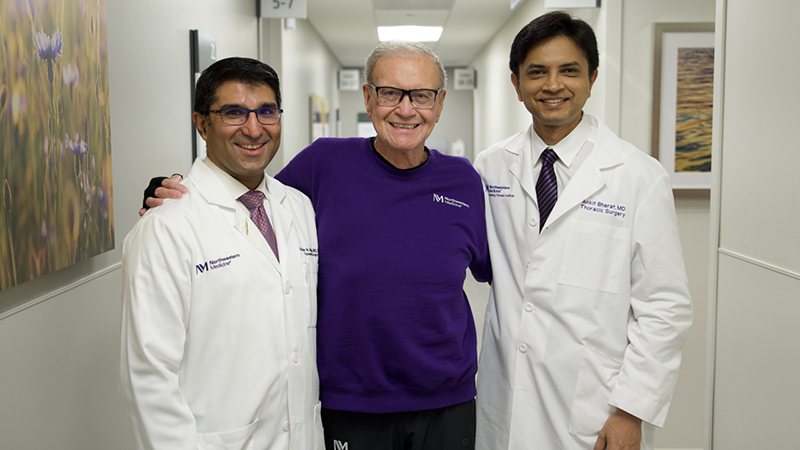Recipe for Brain Tumor Recovery
Published May 2021
Chef Makes Full Recovery Thanks to Expert Neurologic Care
John Peters has been in the restaurant industry since he was 16. Growing up in Dallas, his first job was a busser at a steakhouse. He worked his way up to a prep cook, and within one year, John was "handed the tongs" and assumed the role of chef after the restaurant's chef didn't show up for work. John went to culinary school in New York City where he learned how to balance flavors and textures to create the perfect plate. As a certified chef, he even helped launch Alinea, a Chicago fine-dining restaurant that places creativity at the center of every culinary experience.
"I fell in love with the restaurant industry from the very beginning," says John. "Food has been something I've never lost track of in my life. Cooking is both an art and a science."
When John was later diagnosed with a schwannoma, or a non-cancerous brain tumor, at the Lou and Jean Malnati Brain Tumor Institute of Robert H. Lurie Comprehensive Cancer Center of Northwestern University at Northwestern Memorial Hospital his care team treated him with the same balance of art and science. And food became an important part of his personal recovery.
Numb and in Shock
Prior to his diagnosis, John experienced numbness in his face for a few weeks and saw flashing streaks he describes as "like lightening" in his left eye. Concerned he was having a stroke, his wife urged him to come to the Emergency Department at Northwestern Memorial Hospital. After diagnostic testing and imaging, the care team in the Emergency Department confirmed there was a large tumor behind John's left eye. He couldn't believe it.
"Within a week's time, everything changed, and I was in shock," he says. "It was the darkest time of my life."
John was transferred into the expert care of Northwestern Medicine Neurosurgeon, and Co-Director of the Malnati Brain Tumor Institute, James P. Chandler, MD. Dr. Chandler diagnosed him with a schwannoma, a tumor that grows in the cells that cover nerves. Schwannomas, also called neuromas, are usually found inside the skull near the brain or spinal cord.
Symptoms of a schwannoma vary based on the location of the tumor, and can include numbness in the face, muscle weakness, burning or sharp pain, issues with balance, and tinnitus (ringing in the ears). Tumors by the facial nerve can affect eye movement and vision, as well as swallowing and taste sensations. These tumors are typically benign, or non-cancerous, which was the case with John. However, the tumor was likely to grow and cause more neurologic problems, so he underwent two surgeries to have it removed.
"During the first surgery, we cut off the blood supply feeding the tumor, so we could remove it in the second surgery," says Dr. Chandler. "This was a very complex surgery that required a multidisciplinary team approach and great precision so the surrounding healthy brain tissue wouldn't be damaged." Fortunately for John, this type of precision is exactly the renowned neurosurgery team at Northwestern Medicine is known for.
John's two surgeries were about two months apart. The first surgery took close to seven hours. The second surgery took about twelve hours. He spent a few days recovering in the hospital after each surgery.
During his recovery process at home, John turned to a familiar friend: food. He ditched the ice cream, cheeseburgers and the other unhealthy staples regularly on his personal menu. He committed himself to healthy eating, making sure to eat immune-boosting, antioxidant-rich fruits and vegetables, lean sources of protein, and whole grains. He started walking around his neighborhood and got closer to recovery with each step.
The Double Vision Fix
John's tumor was growing on the nerves that controlled the ability of his eye to move normally and align with his other eye. His care team warned him that there was a good chance he would come out of his second surgery with temporary double vision while his nerves worked to repair themselves and recover.
Northwestern Medicine Neuro-Ophthalmologist Nicholas J. Volpe, MD, worked closely with Dr. Chandler and his team to make sure John's vision made a full recovery.
"Since 40% of your brain is dedicated to some aspect of vision, visual symptoms are very common in patients both before and after brain tumor surgery, which is why Dr. Chandler and I share a lot of patients," says Dr. Volpe.
Dr. Volpe helped John to see with one eye and then helped his eyes to work together with prism glasses, which correct double vision by shifting the image onto the correct part of the retina in the back of the eye, which aids in recovery. John went through three different prescriptions for prism glasses before something special happened that he says marked the official end of his recovery.
"I was changing out of my sunglasses in my living room when I stopped and looked straight ahead. Suddenly, I could see everything clearly again, with no double vision," says John. "A few months later, I was having trouble reading something on the counter of a restaurant, so I went back to see Dr. Volpe to see if this was a side effect of the surgery. Luckily, he told me that I just needed some reading glasses."
Looking Back With Gratitude
With his tumor removed and his vision repaired, John has taken a step back to reflect on his life — and the Northwestern Medicine experts who helped him fully recover.
"I am so fortunate to have ended up at Northwestern Medicine," he says. "Now, I hope I leave every interaction by making someone smile, and I'm grateful for the life I have."






